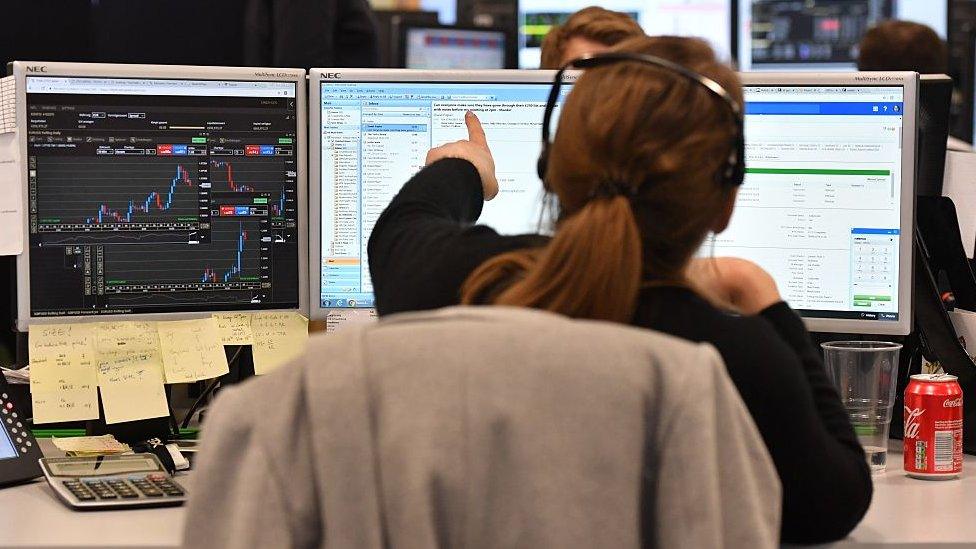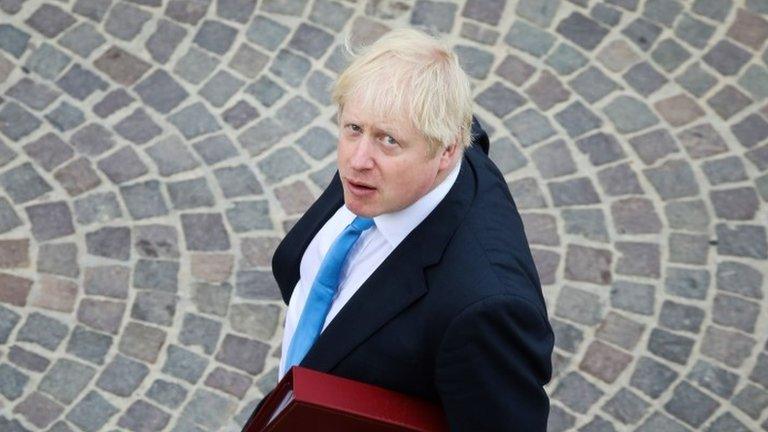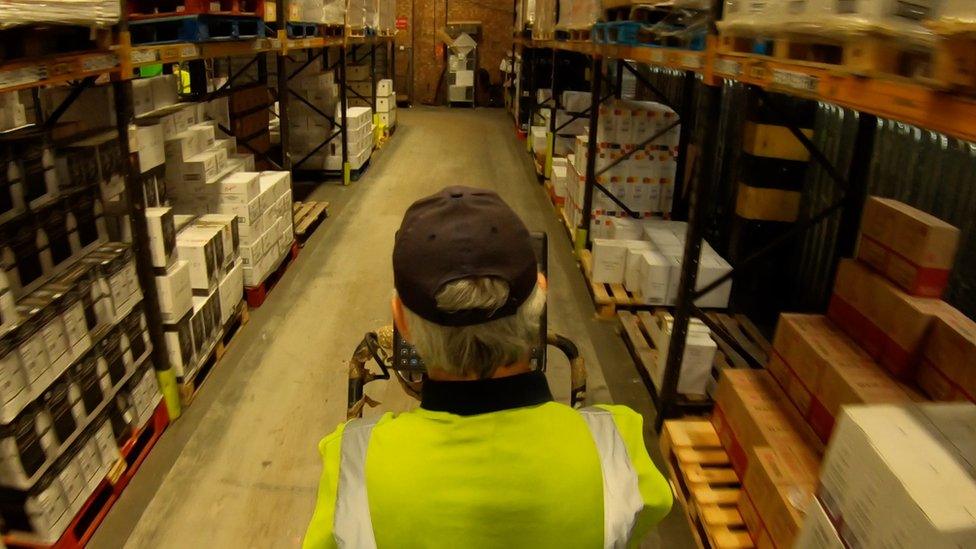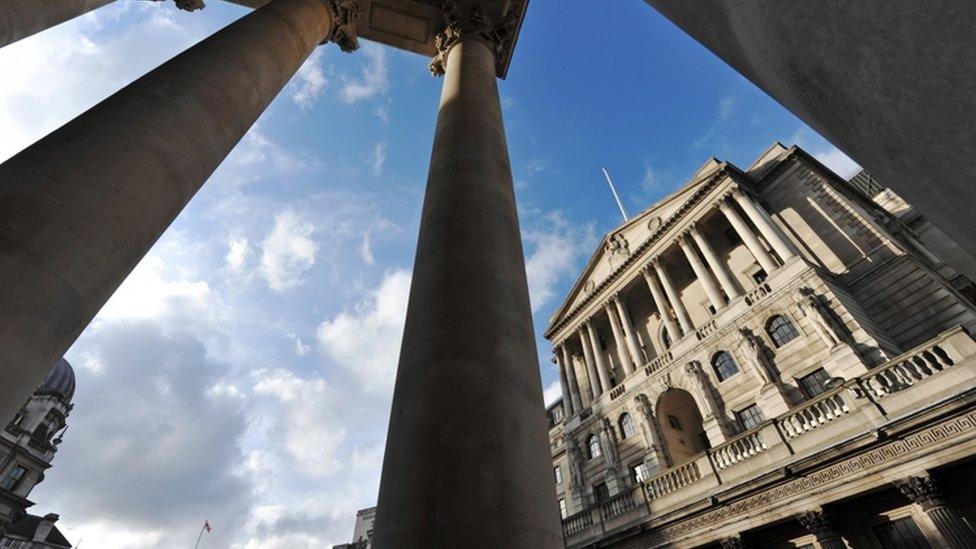Pound heads for two-year low as holidays begin
- Published
- comments

The pound is heading for two-year lows against the dollar as markets react to continuing Brexit uncertainty and signs that the UK economy is slowing.
The currency fell sharply after data showed slowing sales at UK retailers and economists forecast a contraction in the economy in the second quarter.
Against the dollar, the pound fell below $1.25 and was close to its lowest level since April 2017.
The pound was also at a six-month low against the euro at just above €1.11.
With the holiday season getting underway, it means travellers from the UK will getting fewer dollars and euros for their pounds.
Sterling has been swayed by uncertainty in the aftermath of the EU referendum, but has been more stable in recent months because of confidence about the UK economy.
However, recent economic surveys have suggested that the economy may now be weakening and Jane Foley, head of foreign exchange strategy at Rabobank, said this was being factored into the market.
"The economic picture is not particularly pretty," she said.
The pound fell 0.5% against the dollar at $1.2455, marking the lowest point for it since April 2017, excluding a brief "flash fall" in January this year.
Back in May, the pound had been trading at around $1.27.
Pound v dollar
Last week, a survey suggested the UK's manufacturing sector contracted at the fastest pace for more than six years.
On Tuesday, figures from the British Retail Consortium showed average sales growth slowed to 0.6% in the 12 months to June, the weakest reading since its records began in 1995.
Ms Foley also cited a survey by Bloomberg, external which showed that economists are expecting the economy to contract in the second quarter - for the first time since 2012.

Holiday money tips
Pre-order cash on the internet
Use specialist cards with low fees to take money abroad
Avoid buying cash at the airport
Shop around for the best rate
Find out fees on cash machine withdrawals overseas

An update on the UK economy is due on Wednesday when growth data for the three-month period to May will be released, and economists polled by Reuters expect growth of 0.1%.
That would be slower than the 0.5% rate seen in the first quarter of the year.
Pound v euro
The market is also focusing on the Conservative leadership contest. Under Theresa May's premiership, the market had thought the chances of a no-deal were slim, but Ms Foley said that was not the expectation if Boris Johnson wins the leadership battle.
"That's what the market is worried about," she said.
Neil Mellor, currency strategist at Bank of New York Mellon, said that another factor at play was a strengthening in the dollar ahead of testimony by the head of the US central bank. This was helping to push the pound lower.
Jerome Powell, chair of the Federal Reserve, testifies to the US Congress on Wednesday. Mr Mellor said he could provide a more hawkish tone - meaning interest rate cuts were less likely - than previously expected.
- Published3 September 2019

- Published2 July 2019

- Published20 June 2019
